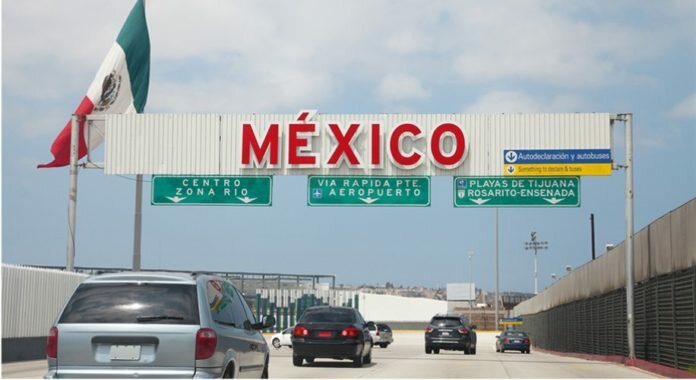
The changing flow of America’s marijuana trade signals a shift in Mexico’s overall attitude towards cannabis.
During the past century of cannabis prohibition, a steady flow of illegal marijuana has been smuggled across the border from Mexican farms to American stoners. But as increasing numbers of U.S. states are legalizing cannabis, the flow of Mexican weed to the States has begun to slow, and is now even reversing, thanks to middle-class Mexican citizens who are crossing the border to sample some of California’s premium pot.
Medical and recreational cannabis dispensaries in San Diego and other nearby cities have reported seeing more and more Mexican citizens traveling to check out their wares. The staff at Southwest Patient Group, a dispensary located only blocks away from the San Ysidro Port of Entry, said that they serve several dozen Mexican clients every day. The store’s staff urge tourists to consume their new purchases on American soil, but many choose to bring these products home with them.
Jaime Andres Vinasco Barco, PhD student at El Colegio de la Frontera Norte in Tijuana, told the Voice of San Diego that people who smuggle Cali weed back into Mexico “aren’t criminals.” Vinasco explained that these individuals are generally wealthier consumers who appreciate the quality and safety of legal cannabis products. “They aren’t the marginalized consumers that we are accustomed to thinking about when we talk about the consumers of cannabis in Mexico.”
“One of the most important things to take into account when you’re analyzing or observing this cross-border phenomenon of consuming and moving drugs is the paradox,” Vinasco continued. “For almost 100 years, Mexico was principally an exporter of cannabis to the United States and about 20 years ago [when California legalized medical marijuana] it started to become a small-scale importer.”
Although U.S. border police still arrest hundreds of people for smuggling drugs across the border every year, the number of cannabis-related detentions has been decreasing steadily since 2012. And while U.S. border guards are extremely diligent about ensuring that no one is bringing cannabis from Mexico into the U.S., the guards on the opposite side of the fence are less aggressive. Some individuals who regularly bring personal amounts of Cali cannabis back home have said that Mexican border guards rarely stop southbound cars, and generally don’t search for cannabis oils or edibles.
This shift in the flow of cannabis across the border may herald a shift in Mexico’s overall attitude towards cannabis. Last summer, Mexican legislators voted almost unanimously to legalize the medical and scientific use of cannabis. Sales of cannabis flower are not allowed, but canna-businesses are allowed to import CBD products from overseas, and sales of medical cannabis edibles, drinks, and cosmeticsare expected to begin this year.
Recreational marijuana is still outlawed in Mexico, but support for full legalization is slowly growing. The country has been locked in a bloody war with violent drug cartels for decades now — a conflict that has claimed hundreds of thousands of lives. Several politicians, including Mexico City mayoral candidate Salomon Chertorivski andformer President Vicente Fox have argued that legalizing weed will shut down one of the cartels’ major sources of income. Recent polls have also found that public opinion in Mexico is slowly tilting in favor of legalization, with around one-third of citizens voicing their support in 2016, up from seven percent in 2008.
Source: https://merryjane.com



